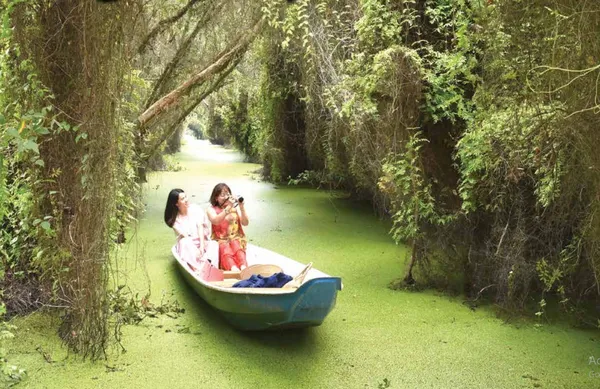 Sunday/Weekend
Sunday/Weekend

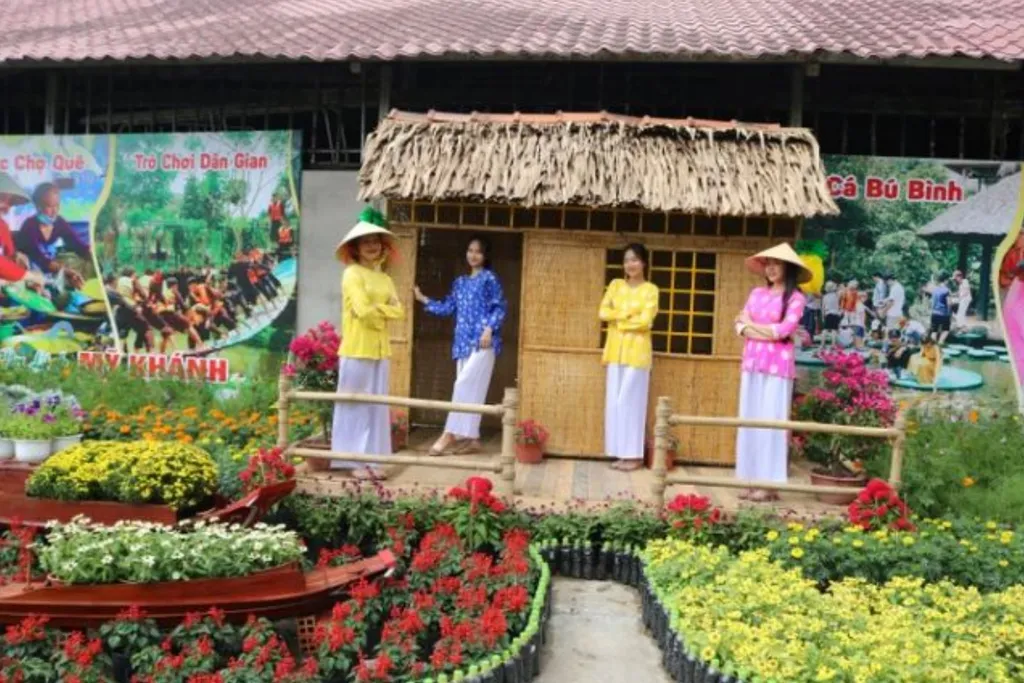 |
| GIRLS ON TOUR: Tourists at an eco-tourism site in Phong Điền District. Photo sggp.org.vn |
Cần Thơ City needs to improve the quality of local tour guides to boost tourism, according to experts.
The Mekong Delta city currently boasts 38 historical and cultural heritage sites, including 14 national-level ones recognised by the culture ministry.
Notably, it is home to a significant cultural landmark, the Hùng Kings Temple, where the Vietnamese people's legendary ancestors are worshipped.
Despite these advantages, tourism development in the area still faces many challenges, one of which is the need to improve the quality of local tour guides, requiring the collaborative efforts of various relevant agencies and businesses.
The number of tour guides at Cần Thơ’s heritage sites is quite limited, resulting in many tourist groups visiting the attractions without receiving proper guidance or updated, accurate information.
This diminishes their satisfaction with the local tourism experience.
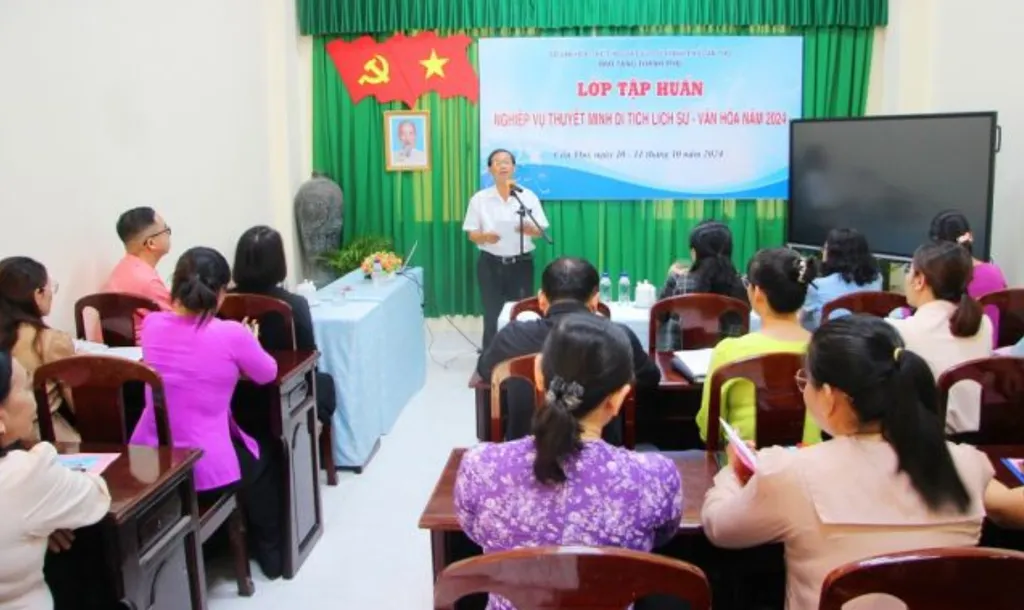 |
| SETTING THE STAGE: A refresher course opens for tour guides in Cần Thơ City. Photo cantho.gov.vn |
For example, the Cần Thơ Museum currently has four curators, while the city has 11 tour guides, responsible for explaining the historical significance of the 38 tourist attractions.
This means that a single guide is often responsible for multiple sites rather than specialising in one.
Aware of this limitation, the city's tourism authority has worked with related parties to find various solutions to the problem.
At some historical sites, for instance, staff members with long-standing connections to the heritage are assigned as guides, but they are often on the wrong side of 60, lack formal tourism training, and are generally unable to meet foreign language requirements.
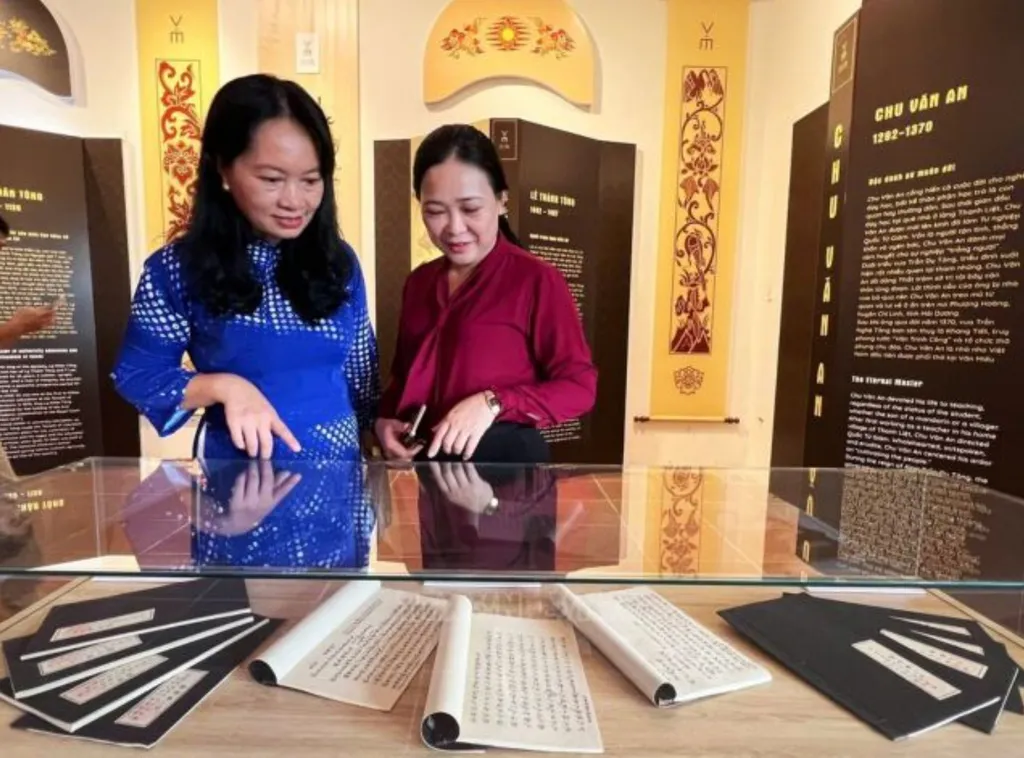 |
| ANCIENT RELICS: Visitors at an exhibition of relics related to Văn Miếu - Quốc Tử Giám (Temple of Literature) at the Hùng Kings Temple. VNA Photo |
Another common practice is to use tour guides from travel companies to serve as site-specific guides. However, this approach also has limitations.
The knowledge these guides possess about local historical heritage sites tends to be general, while today’s visitors can easily search for basic information on their smartphones.
As a result, visitors' expectations for deeper insights into local cultural values and detailed historical knowledge often go unmet.
Solutions
Cần Thơ takes the training of tour guides seriously, organising workshops on interpreting heritage sites annually.
On average, the Department of Culture, Sports, and Tourism hosts two such training programmes per year.
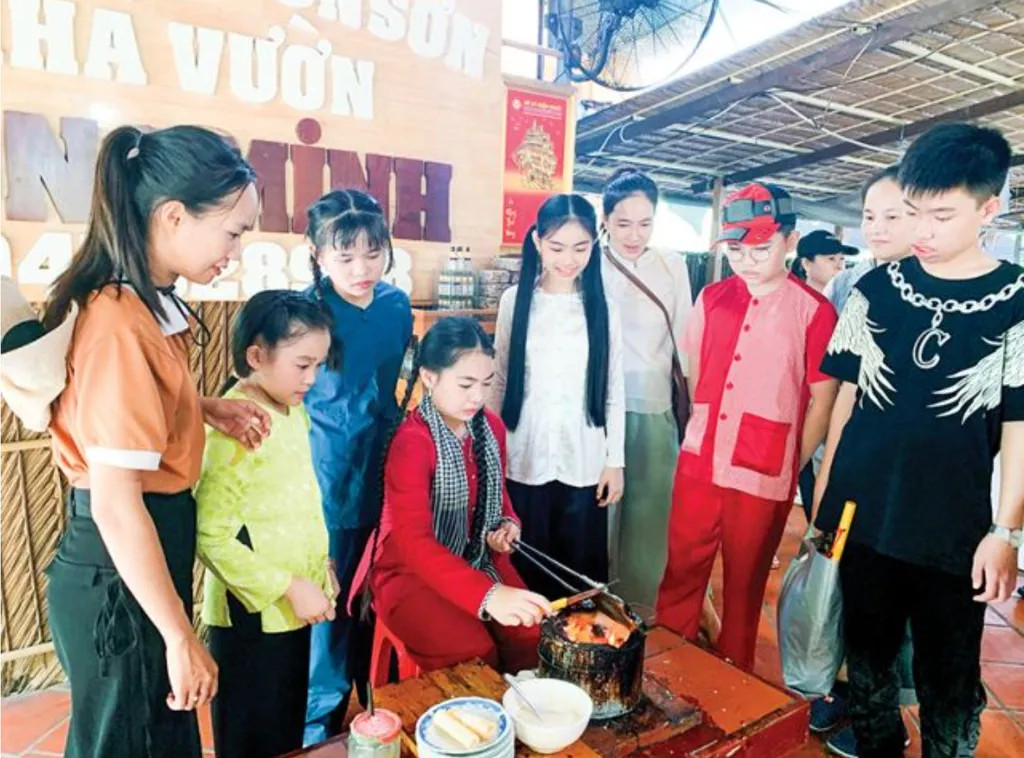 |
| HOT POT: A tour guide from a local agricultural tourism co-operative group (left-most) and visitors at a tourism site in Cần Thơ City. Photo baocantho.com |
In an October 2024 workshop, Nguyễn Hữu Lộc, an MA and lecturer at HCM City Museum of History, emphasised that alongside central and local government support through policies and staffing, guides must take the initiative to enhance their skills.
These skills include foreign languages, presentation writing, pronunciation, intonation, and public speaking.
Tour guides are not just 'information machines' repeating pre-set scripts; they must interact with visitors and answer questions.
Therefore, continually improving knowledge about history, culture, and the sites themselves was essential as no modern technology could replace this, Lộc said.
Regarding the shortage of guides at heritage sites, Lê Hồng Đông, director of Cần Thơ Museum, suggested that some localities were successfully utilising volunteer student tour guides.
Cần Thơ has an advantage in this respect, with several universities and colleges offering tourism-related programmes, such as FPT University, Nam Cần Thơ University, Cần Thơ University, Tây Đô University, and Cần Thơ College of Tourism.
In the age of technology, applying digital solutions to site interpretation can be an effective way to support tour guides.
Some heritage sites in Cần Thơ have already implemented virtual reality, audio guide systems, or QR code scanning for self-guided tours, though visitors still find these offerings somewhat simplistic.
Cultural researcher Nhâm Hùng gave an example from Hà Nội, where multiple tourist destinations have introduced multilingual automatic guide systems.
With a simple QR code scan, users could access audio commentary in combination with multimedia visuals, use maps for navigation, and follow directions through the sites.
This model, seen at the Temple of Literature and Hoả Lò Prison in Hà Nội, could serve as an inspiration for Cần Thơ.
However, to apply such technologies effectively, heritage site management teams must work closely with tech companies to carefully prepare content for guides, Hùng said. VNS




